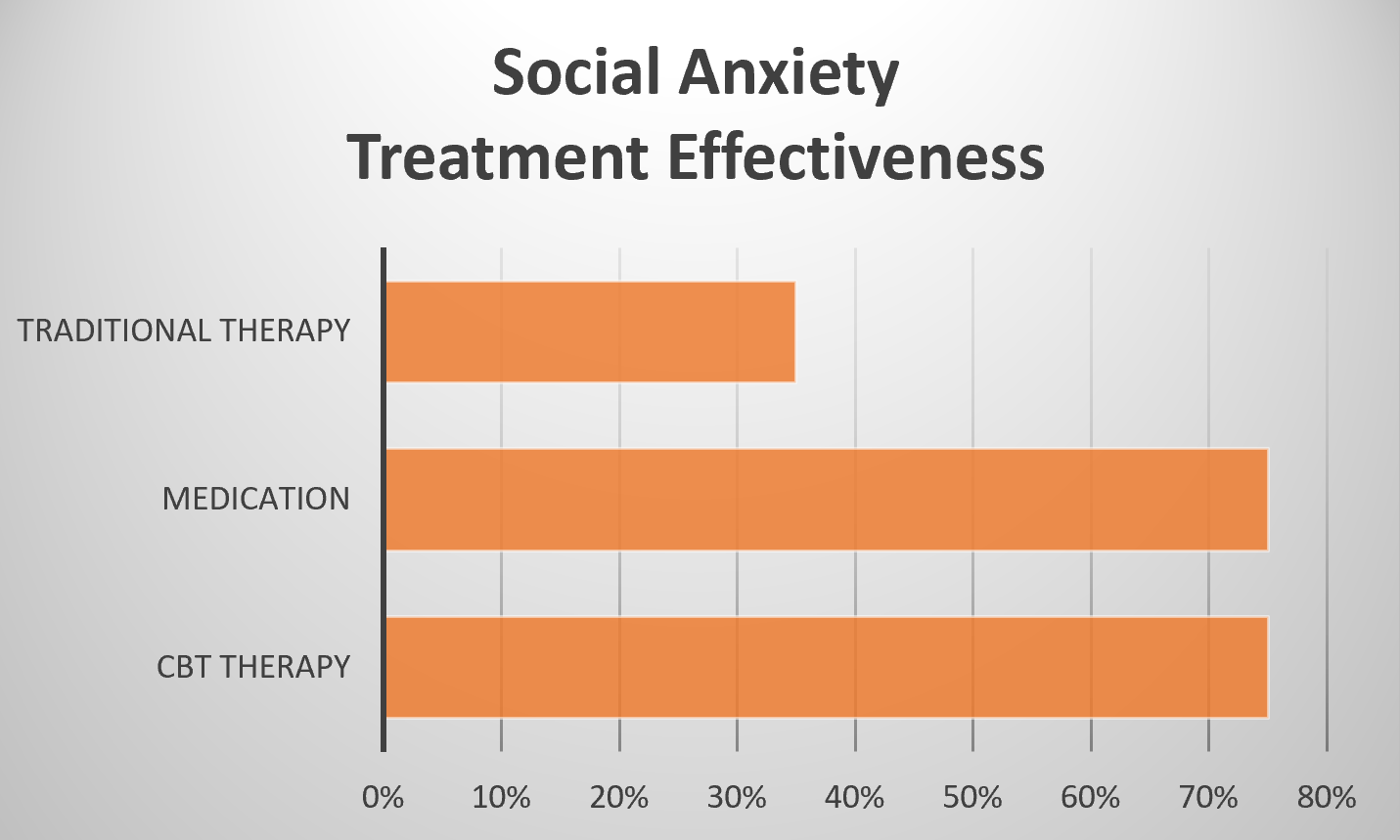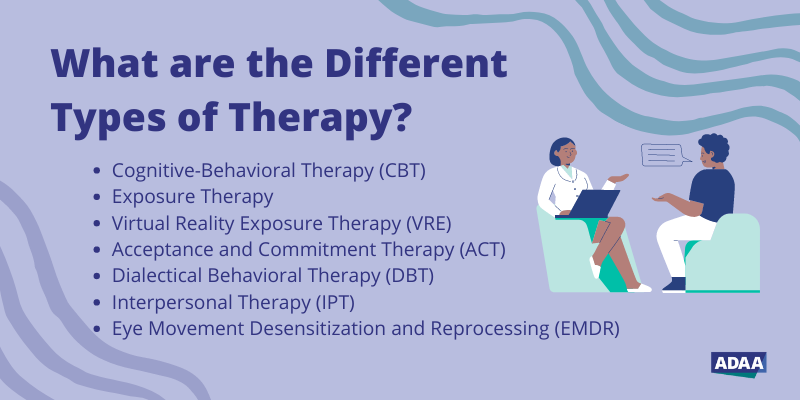Effective Techniques in Therapy for Anxiety Condition: A Course to Recuperation
When encountering anxiety problems, you might feel unclear and overwhelmed of where to turn. Reliable counselling strategies can lead the way for recovery, offering you with the tools to navigate your obstacles. From cognitive-behavioral techniques to mindfulness techniques, each technique provides unique benefits. Recognizing just how these methods function together can make a substantial distinction in your journey. So, what are the key components that will direct you towards lasting change?
Understanding Anxiety Conditions: A Thorough Summary
When you think of stress and anxiety conditions, it's important to acknowledge that they include an array of problems defined by too much concern or concern. These problems can manifest in numerous methods, consisting of generalized anxiousness disorder, panic problem, and social anxiousness problem. You may experience signs and symptoms like quick heartbeat, sweating, or trouble concentrating. It prevails to feel overloaded, and these sensations can interrupt daily life.Understanding the origin creates of anxiousness is necessary - counselling for anxiety. They can originate from genes, brain chemistry, or environmental elements. You might find that particular situations activate your anxiousness, making it essential to determine these triggers
Cognitive Behavior Treatment (CBT): Improving Idea Patterns
Cognitive Behavioral Treatment (CBT) supplies powerful tools for improving the thought patterns that add to anxiousness conditions. Via CBT, you'll find out to identify and test unfavorable ideas that fuel your anxiousness. As opposed to letting anxiety dictate your actions, you'll work with reframing those ideas into even more favorable, sensible ones. This process helps you break the cycle of anxiety by altering exactly how you regard situations.You'll likewise create dealing techniques to take care of anxiety in real-time. By exercising direct exposure strategies, you'll gradually face your worries in a regulated manner, decreasing their power over you. Furthermore, you'll obtain abilities to problem-solve and navigate stressful scenarios a lot more effectively.CBT is structured and ambitious, which means you'll see development as you apply what you learn in therapy to your every day life. With dedication and technique, you can substantially reduce your anxiety and improve your total health.
Mindfulness and Leisure Techniques: Growing Present-Moment Awareness
Mindfulness and relaxation strategies aid you cultivate present-moment recognition, allowing you to take care of stress and anxiety better. By concentrating on the here and now, you can break devoid of the cycle of concern and rumination that typically fuels stress and anxiety. Begin by exercising deep breathing exercises. Breathe in gradually through your nose, hold for a moment, after that breathe out through your mouth. This simple method can calm your mind and body.Engage in mindfulness reflection by reserving a couple of mins daily to observe your ideas without judgment. Pay interest to your breath, sensations, and the sounds around you. You might additionally discover value in progressive muscle mass relaxation, where you tense and relax each muscle team, promoting psychological and physical ease.Incorporating these strategies right into your everyday routine can develop a higher feeling of control, lower anxiety signs and symptoms, and improve your total wellness. Bear in mind, uniformity is key to experiencing the advantages.
Exposure Therapy: Dealing With Anxieties Progressively
Direct exposure therapy helps you face your fears slowly, allowing you to construct self-confidence over time. By making use of steady exposure techniques, you can gradually face what makes you distressed while establishing efficient coping systems. This procedure not just decreases your concern but likewise equips you to handle anxiousness more efficiently.
Steady Exposure Techniques
You can successfully lower stress and anxiety and restore control over your life when you face your concerns slowly. Gradual exposure strategies entail facing your fears detailed, beginning with much less daunting circumstances. You might begin by visualizing the been afraid situation, after that proceed to viewing photos or videos connected to it. Ultimately, you can practice challenging the concern in reality, however only when you really feel prepared. This technique allows you to develop self-confidence as you move via each stage. Bear in mind to speed on your own; rushing can boost anxiousness. Celebrate little victories along the road, as each action forward equips you. By consistently using these methods, you'll discover that your worries begin to lose their hold on your mind.

Building Coping Devices
Building efficient coping mechanisms is vital for managing anxiousness, specifically as you encounter your worries progressively with direct exposure therapy. Begin here by identifying your particular concerns and damaging them down into workable actions. By doing this, you can gradually face each anxiety without ending up being overwhelmed. As an example, if you battle with social circumstances, start by exercising small interactions, like welcoming a neighbor.Alongside progressive exposure, incorporate relaxation strategies such as deep breathing or mindfulness to calm your mind prior to dealing with triggers. Keep a journal to track your progression and celebrate little success. Border on your own with encouraging friends or a specialist that can guide you. Bear in mind, it's a journey-- patience and persistence will reinforce your coping devices, causing better resilience against stress and anxiety.
Encouraging Counseling: Structure Count On and Connection
To successfully sustain somebody with anxiousness, developing trust fund and connection is essential from the very first session. You'll desire to create a secure space where they feel comfortable sharing their ideas and sensations without judgment. Energetic listening is crucial; show genuine interest in what they share. Recognize their feelings and validate their experiences. It is very important to be understanding, as this assists build a link and encourages openness.Be constant in your approach and maintain confidentiality to additional enhance that trust. Use open body movement and make eye get in touch with to communicate your attentiveness. Bear in mind, your perseverance goes a long way; building rapport takes time, and it's vital to value their pace. By promoting this supportive setting, you'll equip them to involve even more completely in the healing process, making it much easier for them to discover their anxiety and work towards healing.
Team Therapy: Shared Experiences and Collective Healing
Group therapy can be an effective tool for those taking care of stress and anxiety conditions, as it allows individuals to share their experiences and find solace in the understanding of others. In this supportive atmosphere, you can share your feelings without anxiety of judgment. Listening to others' tales can stabilize your very own experiences, making you really feel less alone in your struggle.Participating in team treatment helps you create coping approaches through shared expertise and understandings. As you listen to others, you may discover new means to tackle your stress and anxiety that you had not considered before.Moreover, the cumulative recovery that happens in these sessions can promote a feeling of community, reminding you that you're not encountering your challenges alone.Building links with others that recognize your struggle can enhance your self-confidence and inspiration to confront your stress and anxiety. Group therapy develops an area where growth and healing come to be a shared trip, encouraging you to take steps toward recovery.
Integrating Way Of Living Adjustments: Holistic Methods to Anxiety Management
While treatment gives essential support, incorporating lifestyle adjustments can significantly improve your capability to manage stress and anxiety - counselling for anxiety. Start by including routine exercise right into your routine. Workout launches endorphins, which can elevate your mood and lower tension. Next, take notice of your diet regimen. Eating a well balanced diet regimen rich in fruits, vegetables, and entire grains can favorably affect your mental well-being. Don't forget rest-- go for 7-9 hours per evening, as high quality remainder is essential for emotional regulation.Mindfulness practices, such as meditation or yoga, can also assist you stay grounded and existing. Consider alloting time daily to exercise these methods. Ultimately, restriction high levels of caffeine and alcohol intake, as they can exacerbate anxiety symptoms. By making these all natural modifications, you create a more powerful foundation for managing stress and anxiety, complementing the benefits acquired from therapy. Remember, every small action depend on your path to recuperation

Regularly Asked Questions
What Are the Typical Physical Symptoms of Anxiety Problems?
Typical physical signs of stress and anxiety conditions consist of fast heart price, lack of breath, muscle mass tension, sweating, and migraines. You could additionally experience tiredness, wooziness, or intestinal problems, which can additionally complicate your every day life.
For How Long Does Therapy for Anxiety Commonly Take?

Can Anxiousness Disorders Be Completely Healed?
While anxiousness conditions can not constantly be entirely healed, you can manage your signs effectively. With the best techniques and assistance, you'll discover ways to decrease anxiousness, improve your wellness, and lead a meeting life.
What Should I Do in a Panic Strike?
During an anxiety attack, concentrate on your breathing. Breathe in deeply with your nose, hold for a minute, then exhale slowly. Ground yourself by naming objects around you, and remind on your own it will pass.
Are There Medications for Stress And Anxiety Problems?
Yes, there are a number of drugs for anxiousness disorders, including antidepressants and benzodiazepines. You ought to seek advice from a healthcare professional to discover the ideal therapy strategy tailored to your details requirements and situations for the finest results. When you believe regarding anxiety problems, it's vital to identify that they incorporate a variety of problems characterized by extreme worry or fear. These conditions can materialize in different ways, including generalized anxiousness problem, panic problem, and social anxiousness disorder. Structure efficient coping systems is essential for taking care of stress and anxiety, especially as you encounter your anxieties progressively via exposure therapy. Team treatment can be a powerful device for those dealing with anxiety conditions, as it permits people to share their experiences and find solace in the understanding of others. As you pay attention to others, you may find new ways to tackle your anxiety that you had not considered before.Moreover, the collective healing that happens in these sessions can cultivate a feeling of neighborhood, reminding you that you're not encountering your obstacles alone.Building links with others who understand your battle can enhance your confidence and motivation to confront your stress and anxiety.